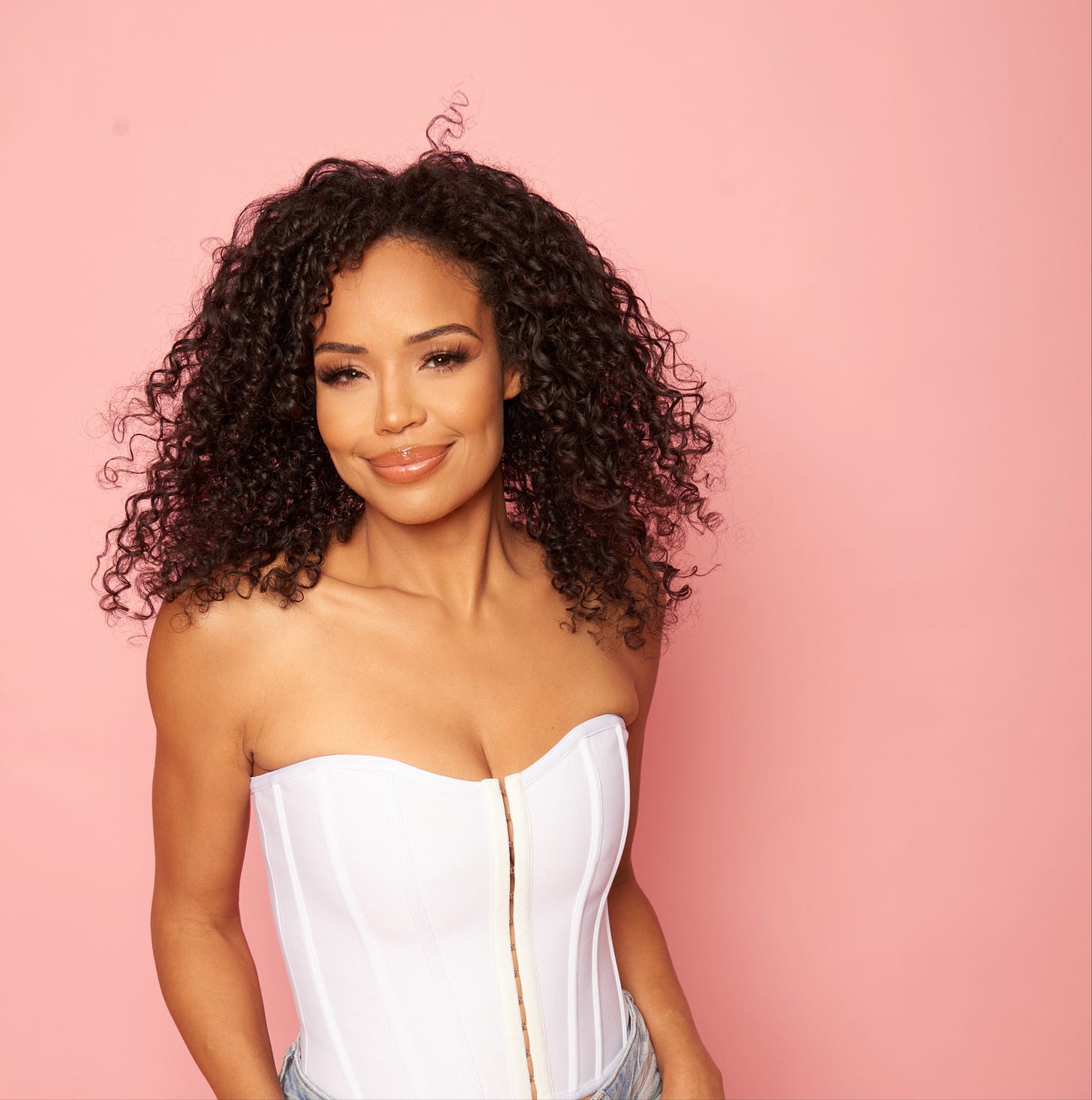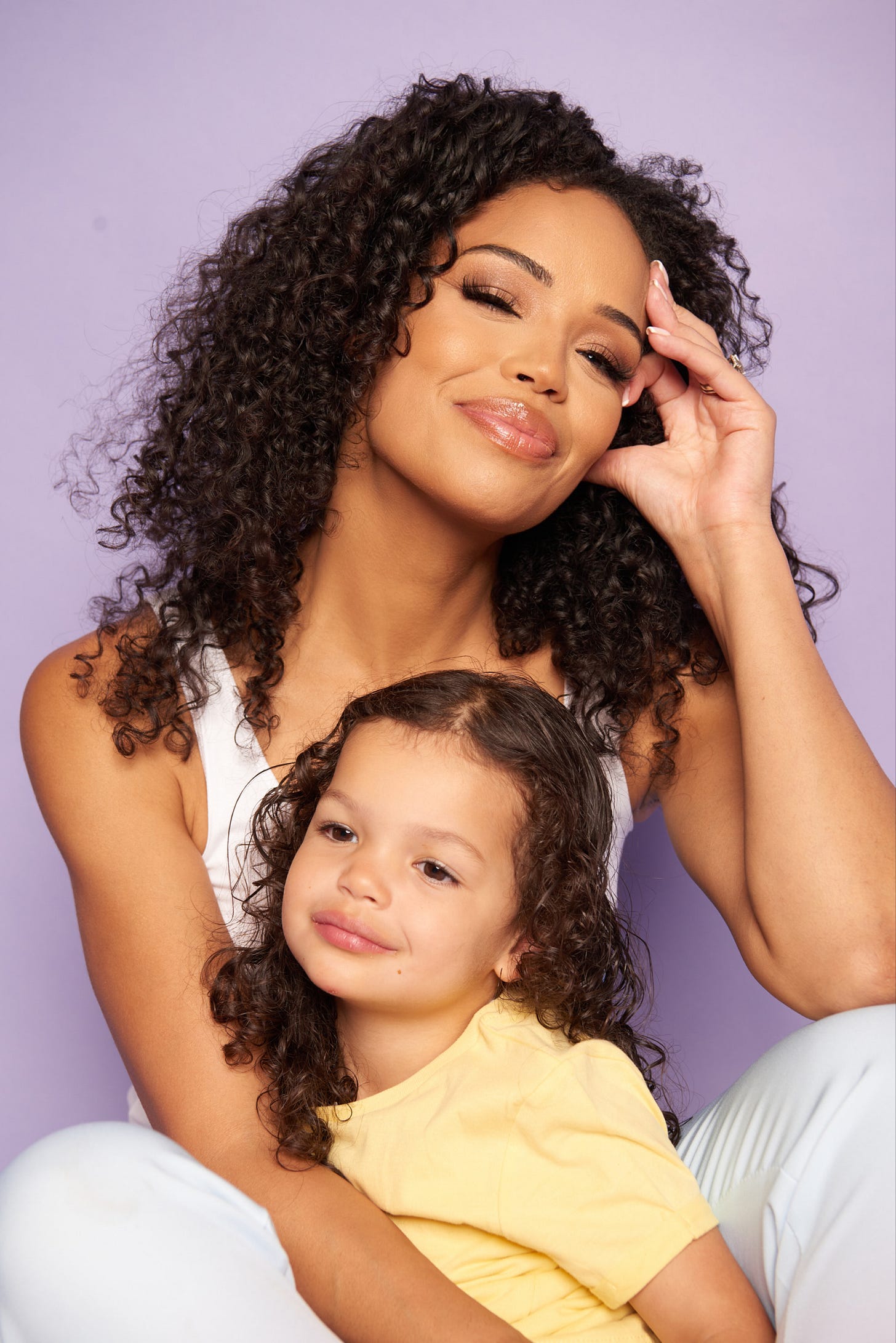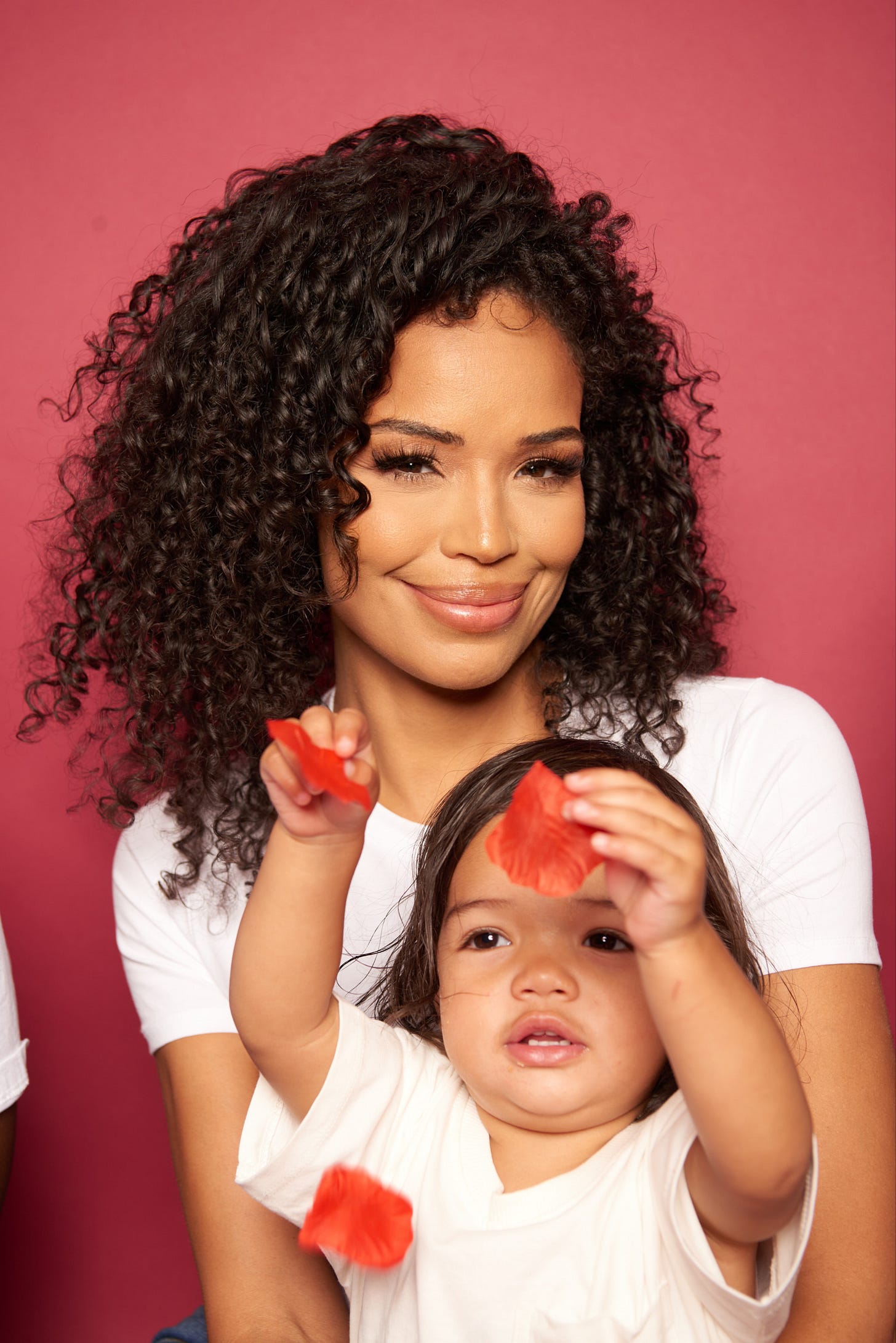Sarah-Jane Crawford: “Pieces of the puzzle were missing, but I’ve never not felt Black”
The presenter and Clean Curls founder on being a chameleon, defining identity within yourself and misconceptions of Cambridge
Hi, welcome back to Mixed Messages and happy new year! To kick off 2024, I’m speaking to presenter and Clean Curls founder Sarah-Jane Crawford, who is of mixed Irish and West African heritage. Sarah-Jane was adopted by white parents, making her experience different to a typical mixed upbringing. Here, Sarah-Jane shares her story and the journey that pushed her to launch her new business. Read it below.
How do you define your identity?
I feel that I’m part of the Black community but know that I’m mixed-race. I’m aware that people would say that I’m obviously mixed-race.
Being adopted meant that I didn’t have all the answers. Now, I know that I’m West African Nigerian. I always knew about the Irish side. We grew up in South East London so I always felt like I had the Black community because of the friends I kept and the music I liked – I really gravitated to people through R&B and we were unified by music.
Pieces of the puzzle were missing, but not to the point where I didn’t feel Black.
Do you speak to your children about their ethnicity?
I tell my kids that they’re brown – my eldest, Summer, has very curly hair like mine, and is lighter-skinned. Bonnie has darker features and more European hair. It’s always interesting to see how children come out!
I try not to go too far with the conversation because Summer can think it’s a game – she’s like, “daddy’s not brown, he’s white.” I tell her “we’re not against white people, and by the way, a lot of people would think you’re white love!” But it reminds me of how important it is to define identity within yourself so you can pass that down.
How have you done that for yourself?
As somebody who was adopted, [identity] for me doesn’t mean a country. Until I did a DNA test, I didn’t have a country to call on. Our dad who adopted me and my brother, who is also mixed-race, is white, but he passed away and I found it difficult to talk about, so I didn’t correct people who thought our dad was Black. My adopted parents were my real parents.
What was it like growing up with two adoptive white parents?
I think they found it really easy because when you adopt a child, you have to jump through a lot of hoops in order for social services to let you do it. You’re almost like model parents when you adopt – it doesn't always work like that, but most of the time it does.
There are Black mixed-race kids in the wider family, so it wasn’t like we were these random Black kids in this white family. Growing up in South East London, I think there was one white girl in my whole class! I don’t think it was ever a thing for my parents. It’s only now that I ask questions about how I bring up my kids.
Has your sense of self shifted over time?
I think I've always been a social chameleon. It’s easy for me to roll with a bunch of posh white people as well as a bunch of yardies in Brixton. It comes naturally to me. I think it’s been a strength, but it can also be a weakness because sometimes you just want to feel like there's one specific place that you belong to.
Growing up in London, you’re exposed to so much culture – I think it would have been different if I’d have grown up in a place where there were no Black people. I mean I did for a little bit, but by then I was aware of the music I liked and the friends I had.
At the time, I was relaxing my hair sadly but I was buying all the Black hair brands and was obsessed with Black culture. When you say Cambridge to people who haven’t left London, they think it’s posh, but we were living a life where we’d be following DJs around from drum and bass and dancehall nights, getting my hair braided until four in the morning, having West Indian or African food at friends’ houses then a roast dinner on a Sunday…
It was a very multicultural upbringing. In my heart, I’ve never not felt Black.
Tell me about Clean Curls and why this is so personal to you.
When it comes to women of colour, hair is inextricably linked to identity, heritage and the conversation around race. I used to relax and chemically straighten my hair from the age of 13 for about 20 years, but it’s not because I was trying to look white. I was trying to look like my Black icons, like Monica, Aaliyah and Faith Evans. Then I got braids because I loved Brandi and Lauryn Hill in Sister Act.
I never really understood how to get the best out of my curls – the front and middle of my hair is thicker and tighter, then underneath and at the sides is looser and thinner. I didn’t understand how to navigate the different textures. At the time, I just wanted it to fall down and stay like that. Now, I know exactly what to do, but I missed out on so many years of having lovely hair as a teenager because I was so busy trying to straighten it.
Now, I’ve really learned to love textured hair. The thing that naturally comes up out of your head will always suit you, and the more time you spend cultivating it, the better it’s going to look. Now, I feel so accomplished spiritually.
I haven’t chemically straightened my hair since 2017, and I’ve steered clear seeing studies that show an increased risk in cancer correlated with using relaxers. I started breathing life into my natural curls in 2020 – it was lockdown, so a lot of us had no choice, but it was a transitional point for me. I was pregnant, and I thought ‘I’d hate for my daughter to look at me and think “you always wear your hair straight so that’s the beautiful way to wear curly hair.”’
My range is for all races and hair types, but it’s really important to serve the Black community and women of colour because of how difficult the journey has been.
I wanted to develop a range that was clean, actually worked and wasn’t £20 a bottle – the majority of people of colour in this country are from a lower socioeconomic background. Why do we – and I say we because I come from a working class background – get poisoned all the time with shit food and toxic products? I want people to have peace of mind, and to prove that you can formulate something affordable and clean.
Have you ever heard any stereotypes around mixed people?
When I was younger, there was this running joke that mixed-race girls were crazy, which is very negative. It makes me laugh now because it’s so stupid. I don’t think people say that much in younger generations.
I think you’d be surprised! I’m seeing a lot on this topic on Twitter at the moment. On another note, what’s the best thing about being mixed for you?
I don't know whether it's the fact that I'm mixed, probably more how I grew up, but it’s given me a sense of being well travelled. I haven’t got that experience of growing up with two different parents because I was adopted.
The thing that I like about myself is that I’m a social chameleon. You can put me anywhere, I will make a best friend and find connection and it won't be contrived. I have a natural curiosity about people, I will delve into uncharted territory all the time.
Can you sum up your mixed experience in one word?
Cornucopia. It’s one of my favourite words. All these different things together in one, in a beautiful way. Because I haven’t had an obvious ‘I’m rooted in this country or culture,’ I’ve been able to have this rich tapestry of life while still being connected to Black culture.
Shop Clean Curls here. Next week I’ll be speaking to ceramicist Yasmin Falahat. Subscribe to get Mixed Messages in your inbox on Monday.
Enjoy Mixed Messages? Support me on Ko-Fi! Your donations, which can start from £3, help me pay for the transcription software needed to keep this newsletter weekly, as well as special treats for subscribers. I also earn a small amount of commission (at no extra cost to you) on any purchases made through my Bookshop.org and Amazon affiliate links.
Mixed Messages is a weekly exploration of the mixed-race experience, from me, Isabella Silvers. My mom is Punjabi (by way of East Africa) and my dad is white British, but finding my place between these two cultures hasn’t always been easy. That’s why I started Mixed Messages, where each week I’ll speak to a prominent mixed voice to delve into what it really feels like to be mixed.








